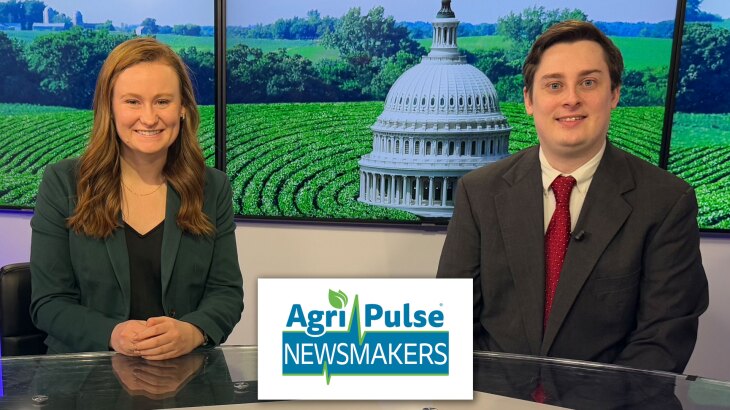With winter right around the corner, there are added risks associated with transporting pigs. Stephanie Wisdom is the Director of Animal Welfare at the National Pork Board and says when it comes to moving pork, the first item you need to check is the trailer.
“Looking at their trailer, making sure that it’s completely dry after they’ve washed it. Wet trailers can lead to freezing temperatures, which can lead to ice. And ice, once the pigs get in that trailer, it melts. And having wet pigs in our trailer can really lead to chilled pigs,” Wisdom said.
According to the Penn State Extension, pigs that struggle to stay warm can experience stress-induced health problems like stunted growth and poor reproduction, leading not only to animal suffering but less profit for the producer.
Proper bedding in the trailer plays a big role in keeping pigs warm.
“The bedding for the pigs keeps them from coming in direct contact with that cold metal on that trailer and aids in that moisture control as well,” Wisdom says.
“As a driver, you want to make sure that those plugs on your trailer are closed at pig level as well.”
Experts at the Michigan State Extension offer these tips for cold transportation.
- Insert grain slats in farm trucks.
- Close nose vents in trailers.
- Use panels to protect pigs from crosswinds.
- Block or plug a portion of the ventilation holes/slots in trailers.
- Load fewer pigs per load.
- Provide extra bedding (wood shavings, wheat straw, corn stover, etc.).
- Use covered loading chutes that minimize the amount of cold air blowing on pigs.
- Move pigs in small groups (four to six pigs at a time).
- Use an absorbent material in the load out area to prevent pigs from slipping and injuring themselves.
- Walk pens to identify sick/injured pigs before loading.
The Pork Checkoff also offers Transport Quality Assurance training.

















